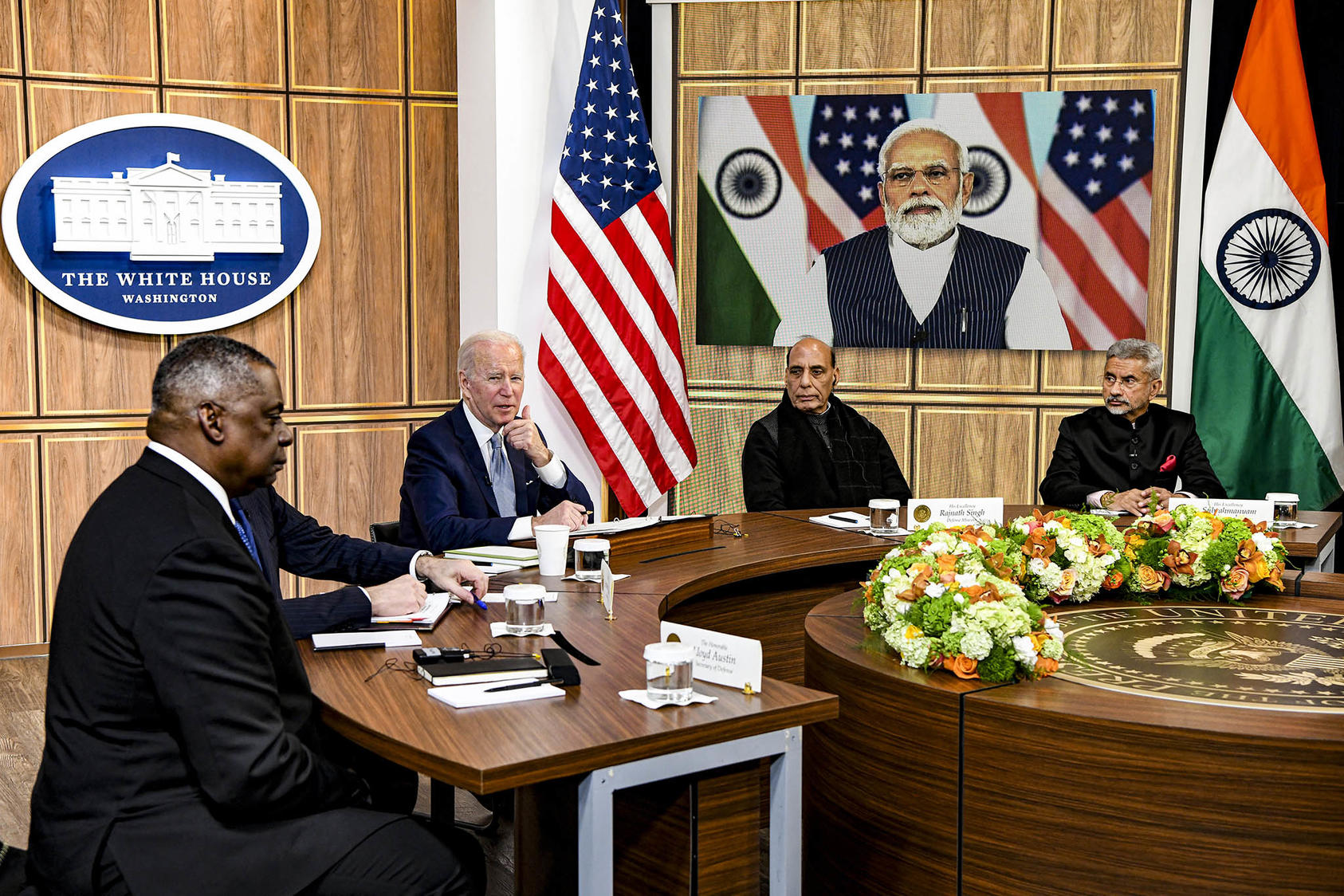Policy Commentary, May 22 2024
Dr Happymon Jacob

Substantial changes have occurred in the geopolitical environment that regulates the relations between India and the United States. Consequently, intricate discussions about their bilateral agreements and ongoing dialogues are now taking place. Both India and the United States’ strategic echelons increasingly agree on the urgent need to strengthen their partnership based on shared interests and strategic objectives. The historical nonalignment of India and its protracted ambivalence towards the former make it important to develop bilateral relations with America.
Recalibrating Strategy- Defense and Security Agreements
However, changing geopolitics can be seen through the ongoing recalibration of US strategy leading to partial withdrawal from specific regions showing that India’s importance for the US has significantly increased. This is particularly true considering the United States’ efforts to counter China’s rise in the Indo-Pacific region and beyond. Undoubtedly, the Indo-US relationship has exhibited exceptional resilience amidst diplomatic and political fluctuations. This can be partially attributed to the effectiveness of the defense and security dialogues that were initiated following India’s landmark nuclear tests in 1998. These dialogues have functioned as crucial channels in advancing the bilateral relationship to unparalleled levels, enabling the exploration of mutual strategic concerns and shared principles throughout the Indo-Pacific and worldwide spheres.
The Indo-US defense and security agreements including BECA (Basic Exchange and Cooperation Agreement) and COMCASA (Communications Compatibility and Security Agreement), demonstrate that the partnership runs deep despite initial concerns and complex bureaucratic procedures in India. However, there remain several hurdles to overcome even as some significant strides have been made towards the implementation of these agreements under hot war-like conditions particularly on territorial wrangles with China. What stands in the way is how India’s huge gap with China constrains New Delhi into a very delicate game. India also must continue having historic relations with Russia at the same time as it aligns strategically with the United States. Furthermore, the degree of private sector engagement in defense dialogues becomes even more critical in light of India’s growing focus on developing domestic defense capabilities and increasing private sector involvement in defense exports.

The Significance of Long-Term Strategy
The unresolved nuclear dispute between India and the United States, which emerged after India conducted its landmark nuclear tests in 1998, emphasizes the critical need for continued communication and cooperation, specifically in areas related to advanced nuclear technology and renewable energy. Moreover, it is crucial to develop a comprehensive understanding of the Indo-US relationship’s future trajectory that extends beyond the immediate future, taking into consideration long-term strategic imperatives and geopolitical exigencies. The complex network of bureaucratic mechanisms and bilateral agreements highlights the critical significance of synchronized efforts and practical approaches to overcoming political and bureaucratic barriers.
Currently, the relationship between India and the US is at a very crucial point where it has come to an intersection of enormous opportunities and daunting challenges. Consequently, both countries are well positioned to successfully navigate through a complex labyrinth of geopolitical uncertainties by capitalizing on synergies that emanate from shared values and common interests. However, some issues like the implementation of defense agreements towards enhancing private sector participation and forecasting the future nature of the relationship must be addressed for progress to be made. This will need teamwork and strategic planning. The Indo-US partnership can contribute effectively in addressing regional as well as global problems only if they continue in their steadfast effort to improve cooperation within them in the foreseeable future.
Remarks made by Dr Happymon Jacob, Founder and Honorary Director, Council for Strategic and Defence Research, at Second Virtual Panel Discussion on “Defense and Security Dialogues between India and the United States” February 20, 2024, for an ongoing project on Partners in Progress: How Does the US-India Strategic Partnership Matter?
Organized by Centre for East Asian Studies, CHRIST (Deemed to be University) and Rising Powers Initiative (RPI), Elliott School of International Affairs, George Washington University in collaboration with US Consulate General Chennai.
